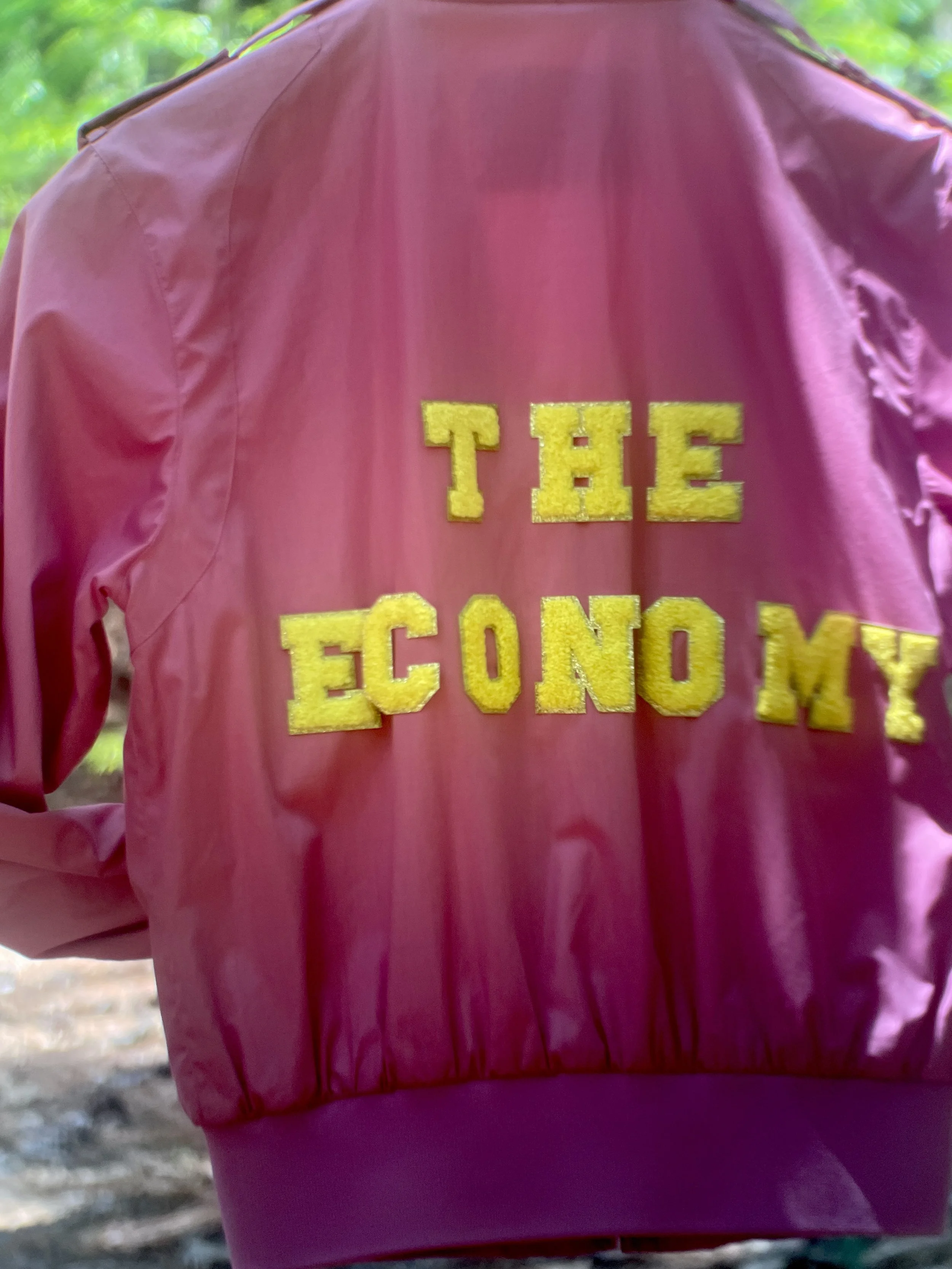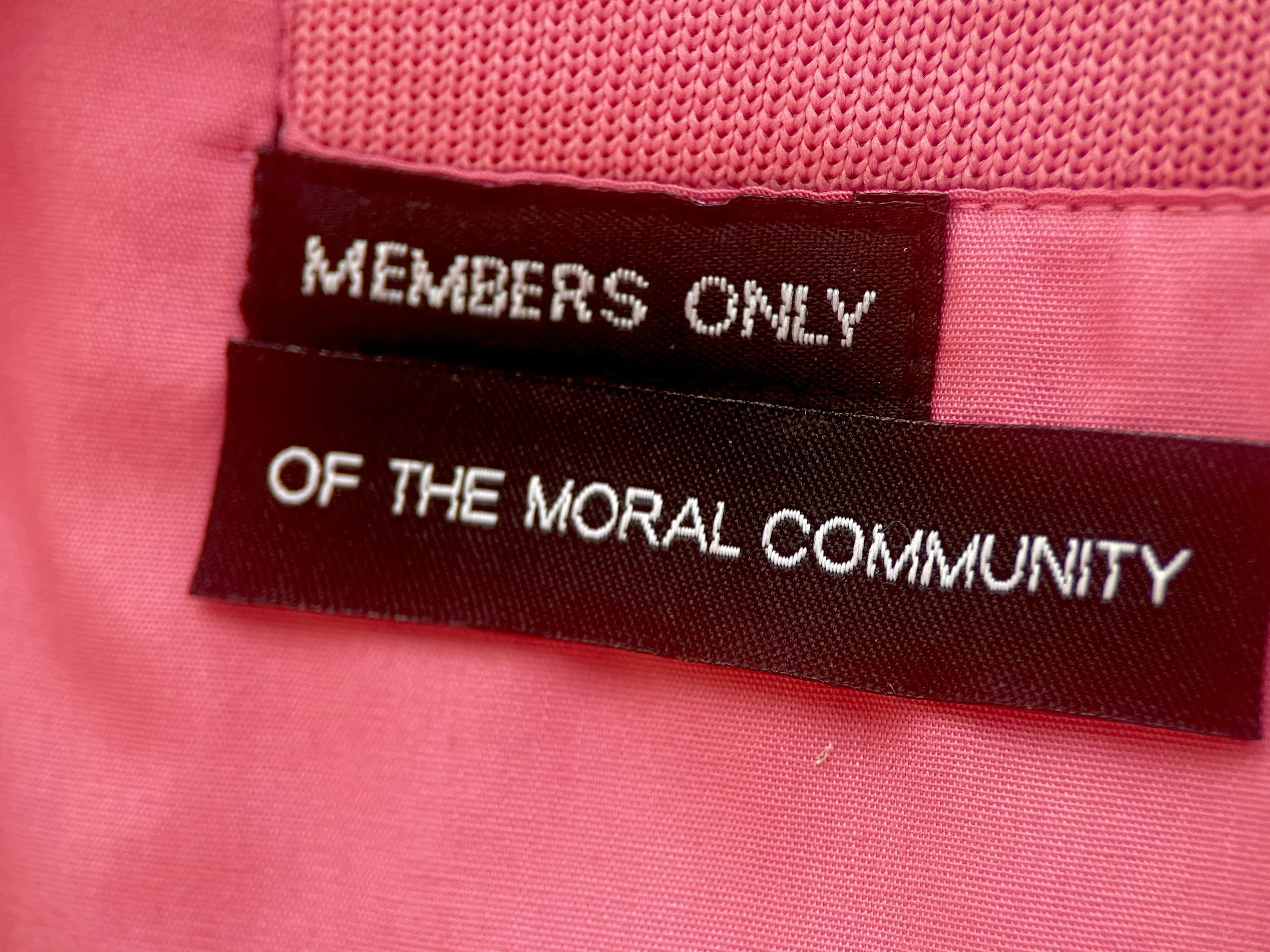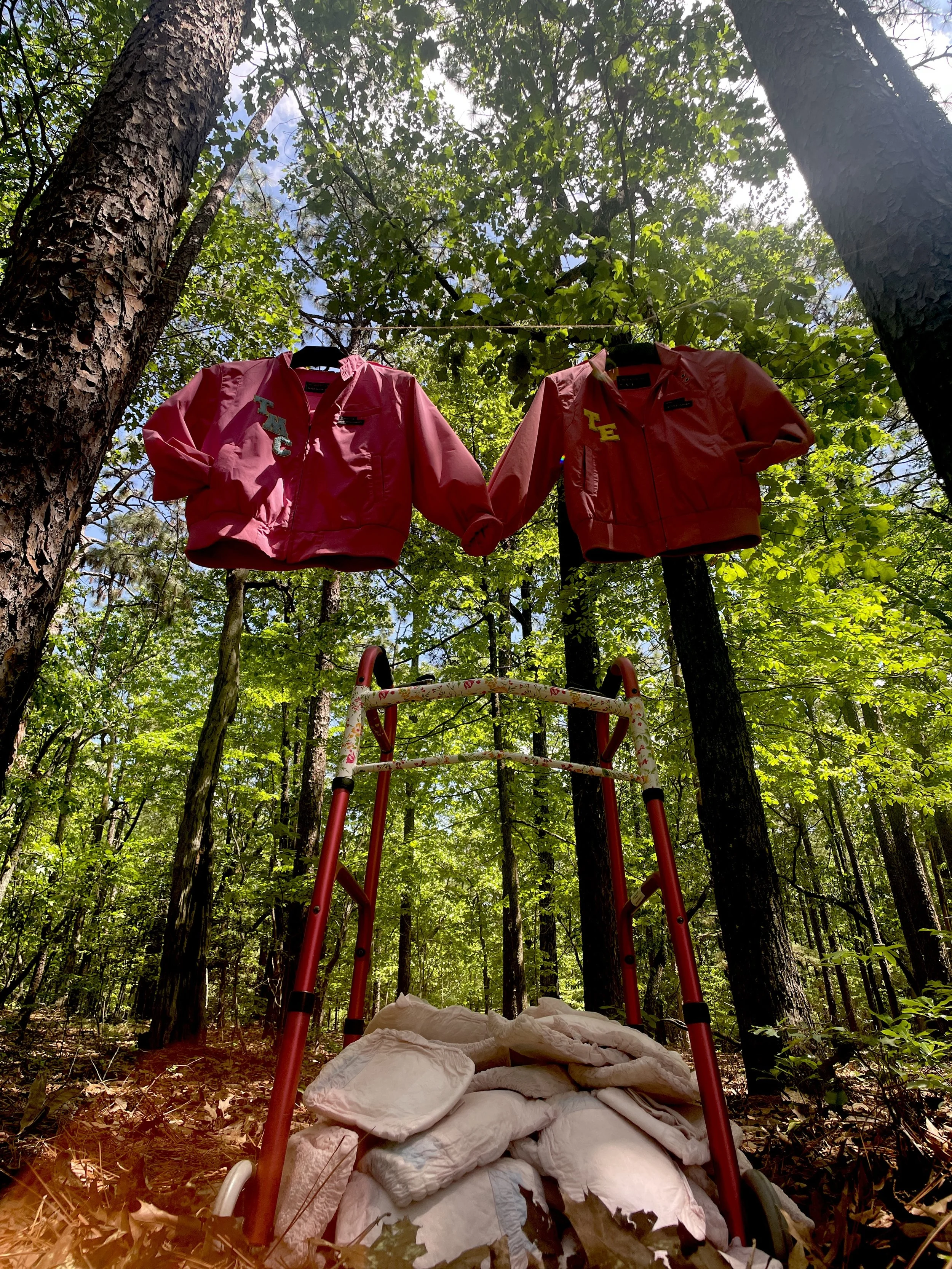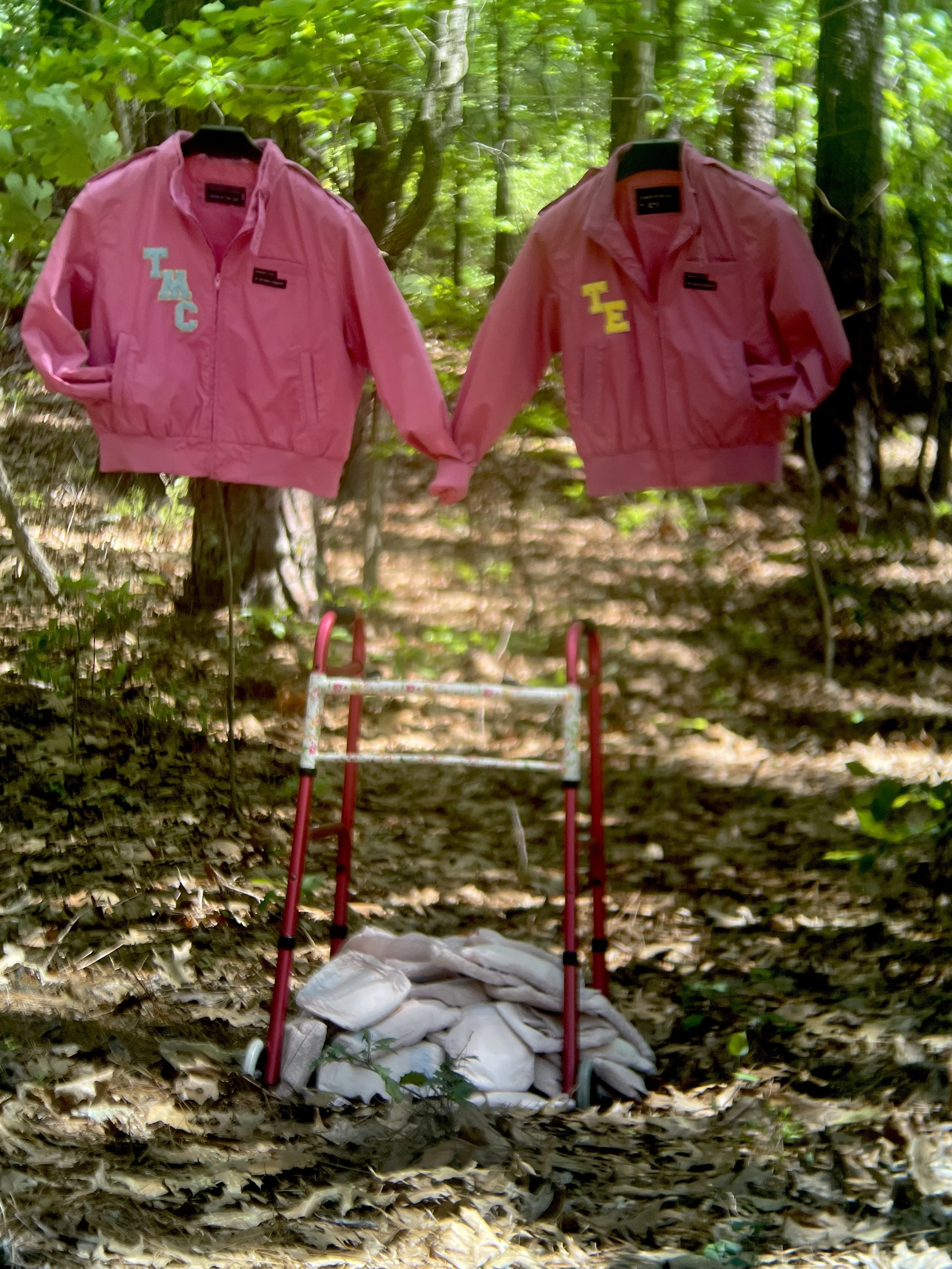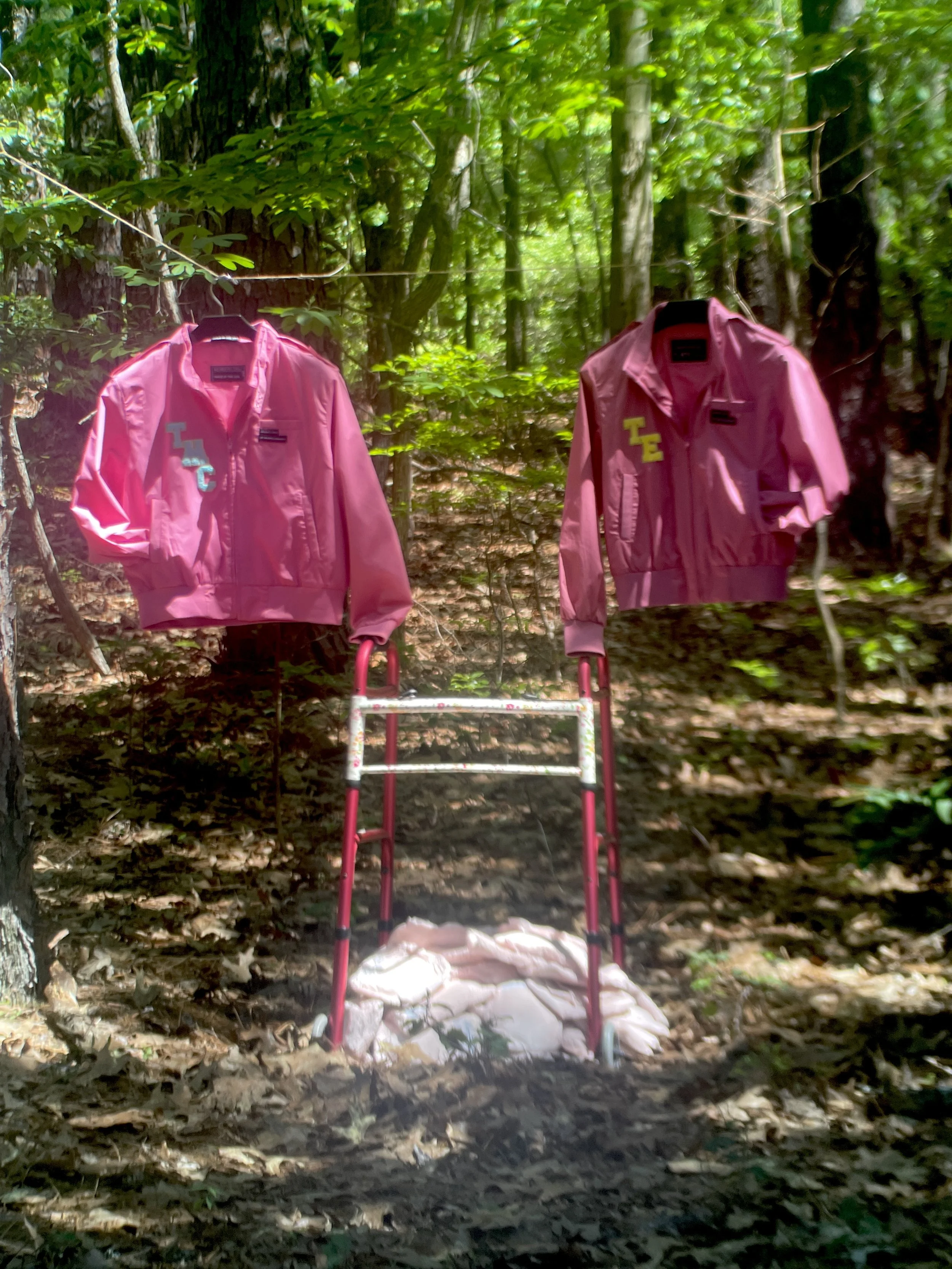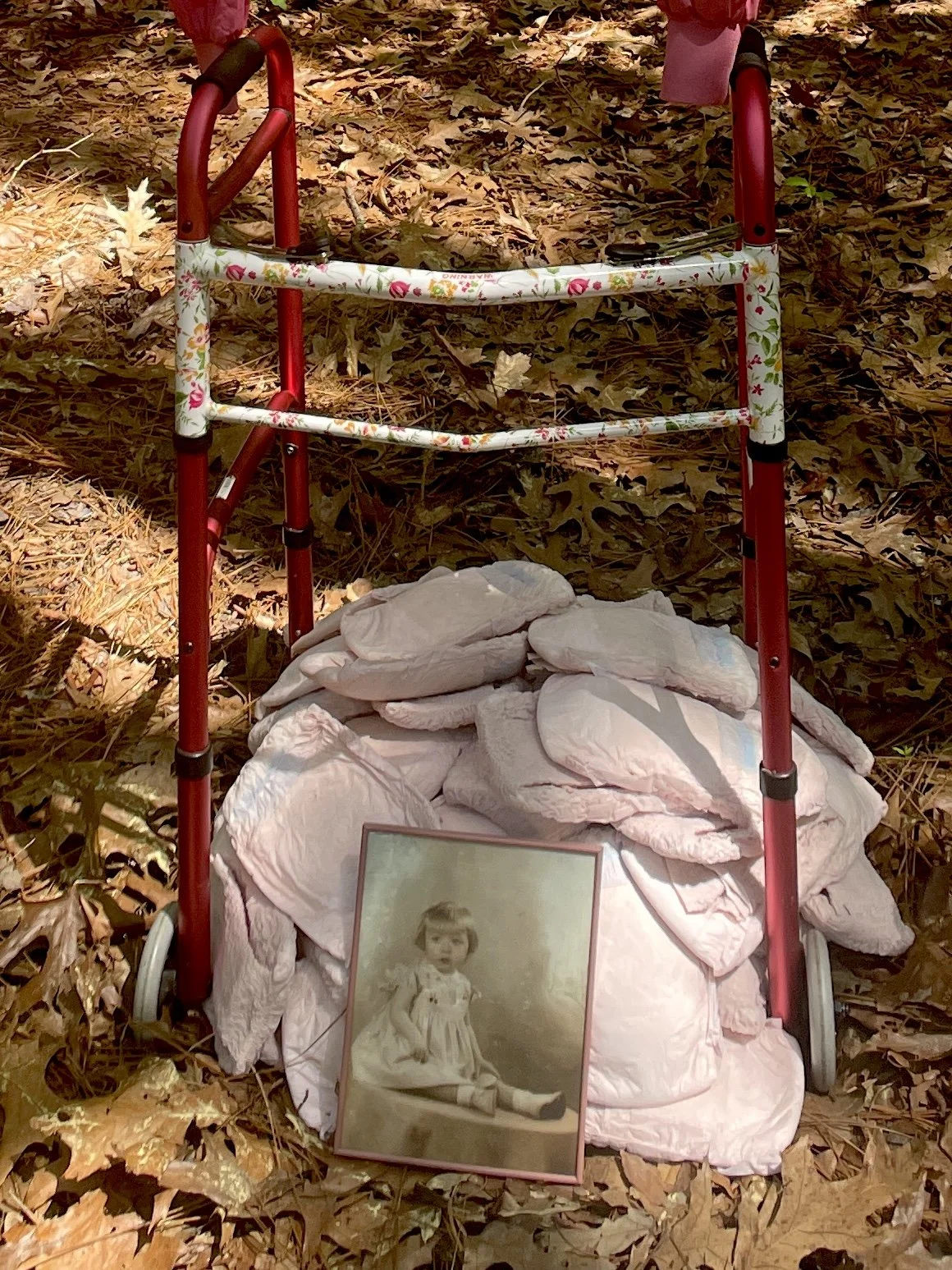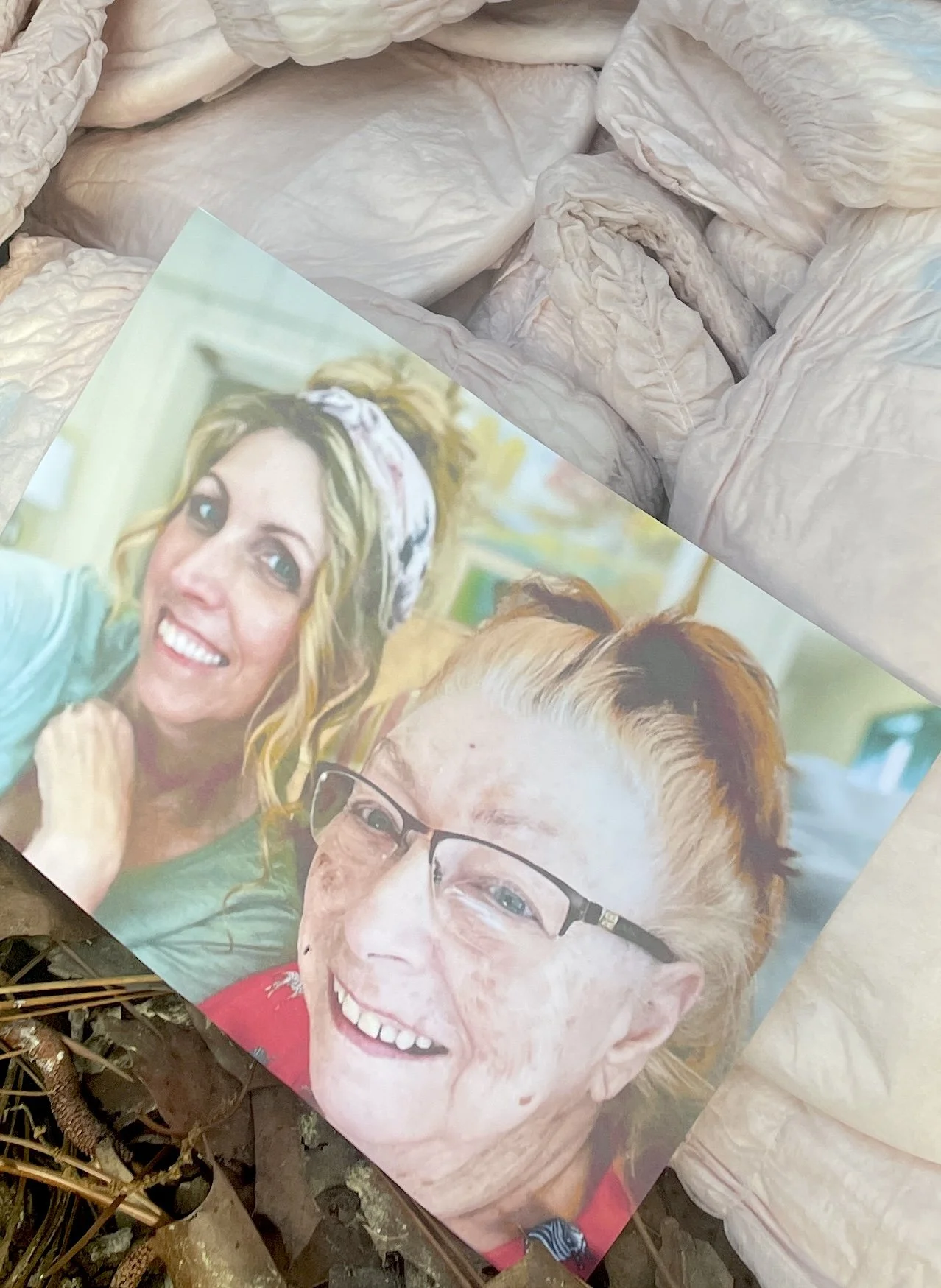
MEMBERSHIP HAS
ITS PRIVILEGES
Millions of unpaid family dementia caregivers today were children of the 80s, a time when Members Only jackets were THE fashion statement and American Express touted the slogan “Membership Has Its Privileges.”
It was a time when membership really meant something. You were special, belonged, “we got you.”
But when happens when, 40 years later, dementia hits your parent and all of the sudden you are no longer a member of two important social institutions:
The Economy and The Moral Community
Now you are caring for someone with a questionable autonomy and questionable rights to resources decided upon by The Moral Community. With this, your autonomy and right to resources are in question as well.
Membership to these institutions does indeed have its privileges.
But now you are caring for someone who holds no value in The Economy and are providing a service, care, that is not fungible.
Membership exclusion for these caregivers results in devastating impacts of being a unpaid family dementia caregiver, impacts that include depression, anxiety, isolation, loss of finances, loss of freedom, relationships, friendships, and more.
This installation explores how The Economy and The Moral Community go hand-in-hand and that with inclusion, these impacts of caregiving can be minimized or reversed, giving unpaid family dementia caregivers the support needed to care for someone with a debilitating brain disease.
The installation below is delivered in stages, with new elements added at each new stage.
Vignette 1
Hand in Hand
Vignette 2
Walker + Diapers
Vignette 3
Adding Support
Vignette 4
One Human
Vignette 5
Two Humans
The Moral Community
Morality provides the framework for how we ought to engage with and treat others, and from this shared understanding, a moral community emerges (Helm 00:31:30; Lindemann Holding xv). That is, both ourselves and others are granted moral consideration in determining whether our treatment of one another, and the functioning of society, is right or wrong, equitable or exclusionary, humane or inhumane, as examples. To be considered a member of the moral community, one’s personhood must be acknowledged and recognized by others (Lindemann, Holding 203). This recognition grants access to “live well in the sphere of special moral consideration reserved for persons” (202).
Beneficence, others acting and responding in accordance with another’s best interest at heart, and dignity, the “right to live in conditions which genuine self-respect is possible” (Dworkin 232, 233; Kingsinger 44) are two key benefits of being a member of the moral community. Both beneficence and dignity require the social and the material. In cases of dementia, however, personhood is often in question, meaning membership in the moral community is in question, meaning whether someone is deserving of benefits such as beneficence and dignity is in question, meaning that the social and material resources needed to care for such persons are in question (Dworkin 229; Jaworska 125; Lindemann, Second Nature 20). Do those with dementia know when they are being harmed? Do those with dementia know if they are not living a life of dignity? If they do not know, are they, the person, actually being harmed at all (Dworkin 230, 236; Lindemann Holding xv; Lindemann Second Nature 12, 20)?
We come to the question of rights. Do those with dementia have the right to receive moral community membership benefits such as beneficence and dignity, even if they don’t know they are being bestowed upon them? While bioethicists have different reasons for declaring that such inclusion is indeed a right for dementia patients, and that the “right to receive care [is] essential for meaningful citizenship”, sociologist Evelyn Nakano Glenn claims that “what is more difficult is to make the case for rights and entitlements for those providing care” (Dworkin 230, 236; Glenn 193; Jaworska 125; Lindemann, Second Nature 12).
Dworkin states, “It is expensive, tedious, and difficult to keep seriously demented patients clean, to assure them space for privacy, to give them the personal attention they often crave” (234). Expanding on this, it is indeed “expensive, tedious, and difficult” (234) to create the conditions for beneficence, dignity, and the other benefits of moral community membership, yet this is exactly what unpaid family dementia caregivers are expected to do. In doing so, they: 1) become a moral community of one, with limited resources and capacity; 2) are excluded themselves from membership in the broader moral community; and 3) denied meaningful access to the right to live well, in the way and with the potential available to those not burdened by caregiving (Lindemann Holding 202). They are left alone, caught in a dilemma: managing the care, dignity, quality of life, and future of their loved one alongside their own care, dignity, quality of life, and future. At first glance, this tension appears to belong solely to the realm of morality. However, on closer inspection, it reveals itself as an issue of economics, of what is deemed valuable, and what is not, within the logic of the market, discussed next.
The Dementia Economy
While neoliberal capitalism positions “profit making as the organizing principle of life” (Chatzidakis et al. 7), it does so while seemingly, and willfully, ignoring the structure of unpaid care, who performs it, and its value (Folbre, Care Provisions 201). Of the $781 billion annual dementia economy, care is valued at $277 billion (United States Cost of Dementia Research Team; Latsuka et al. Care Spending 187). Of that $277 billion, $233 billion represents 6.8 billion hours of unpaid care, 70% of which is provided by women (United States Cost of Dementia Research Team; Glenn 2; Women and Dementia 8).
This $233 billion is what is referred to as the replacement cost of this care, meaning it would cost “$230 billion to hire home health aides to provide all this care” (Latsuka et al., Care Spending 2742). This is to say: the American Medicare and Medicaid systems, designed to support the health of the elderly and disabled, rely on the unpaid labor of women to function, and I would say, to exist. As feminist economist Jayati Ghosh puts it, “You cannot understand the economy without looking at gender relations” (00:00:09).
The social impulse to position women as biologically driven to care continues to dominate and reify the structure of care in the United States, within dementia care and beyond, and in doing so, uniquely makes women easy targets for economic exploitation (Folbre, Care Provisions 208). Biology is often invoked to claim that women are simply better at caregiving or naturally prefer it (208). However, as feminist economist Nancy Folbre reminds us, “Altruistic preferences are not God-given or programmed in human DNA” (208).
Women are held to much “higher standards of moral obligation” (Folbre Care Provisions 208) to provide care precisely because of the perception that caregiving is part of a biologically determined destiny (Gerson 8). Indeed, when care is needed, it is overwhelmingly women who “step up” (Folbre, Care Provisions 204). With this, it is women who suffer economically, giving up paid work, forgoing career advancement, and missing out on the opportunity to prepare for their own elder years. Unpaid dementia caregivers have a loss of “$8 billion in annual earnings” and a loss of quality of life, including mental and physical illness and other negative impacts of caregiving, valued at “$6 billion” (United States Cost of Dementia Research Team).
This moral tension, between caring for oneself and caring for others, often places unpaid family dementia caregivers in the position of being what Folbre refers to as “prisoners of love” (Should Women 606). The combination of genuinely caring for and about the beneficence and dignity of a loved one with dementia, while having limited resources to purchase such care on the market, and with no one else stepping in, creates only one solution: the family must do it. And within that family, it is more often than not one woman who does it (CITATION). Additionally, the love and moral obligation caregivers feel leaves them with very little bargaining power to change the circumstances or the situation.
This is the current, common subjective experience of many family dementia caregivers, and the likely trajectory of caregivers in the future. The subjective and collective experiences of unpaid family dementia caregivers, taken in tandem with the data, give a clear picture. To ignore both the moral and economic value of unpaid dementia care, and care at large, is to ignore the fact that unpaid dementia care bolsters the entire $781 billion annual dementia economy (United States Cost of Dementia Research Team). Failing to appropriately include dementia patients and their unpaid caregivers as full members of these social institutions is not only morally bankrupt, it is a denial of reality, including the reality of the economy. This, combined with the rapid rise in the aging population and the increasing prevalence of dementia, points to an unsustainable dementia care system and economy.
To build an equitable and sustainable dementia care system, caregiving for dementia must be acknowledged and valued for the immense value it provides. In doing so, once care is positioned as valuable, indeed, as the backbone of the U.S. Medicare and Medicaid systems, we can begin to create structures that support unpaid family dementia caregivers and their futures, while also working toward a care system fully covered by Medicare and Medicaid. As Folbre states, “collective commitments to the intrinsic value of human capabilities are crucial to any vision of sustainable economic development” (Care Provisions 201). The capabilities of unpaid family dementia caregivers, all of these women and men, provide value, beneficence, and dignity, rights they themselves deserve (Glenn 193).
Works Cited
Alzheimer’s Disease Facts and Figures. (2023). The Alzheimer’s Association. https://www.alz.org/alzheimers-dementia/facts-figures#:~:text=More%20than%206%20million%20Americans%20of%20all%20ages%20have%20Alzheimer’s,are%20age%2075%20or%20older.
Alzheimer's Research UK. Women and Dementia: A Marginalised Majority. Alzheimer’s Research UK, 2015, https://www.alzheimersresearchuk.org/wp-content/uploads/2015/03/Women-and-Dementia-A-Marginalised-Majority1.pdf.
Chatzidakis, Andreas, Jamie Hakim, Jo Littler, Catherine Rottenberg, and Lynne Segal. The Care Manifesto: The Politics of Interdependence. Verso Books, 2020.
Dworkin, Ronald. “Life Past Reason.” Life’s Dominion: An Argument About Abortion, Euthanasia, and Individual Freedom, Alfred A. Knopf, 1993, pp. 218–237.
Folbre, N. “Should Women Care Less? Intrinsic Motivation and Gender Inequality.” British Journal of Industrial Relations, vol. 50, no. 4, 2012, pp. 597–619. https://doi.org/10.1111/bjir.12000.
Folbre, N. “Care Provision and the Boundaries of Production.” Journal of Economic Perspectives, vol. 38, no. 1, 2024, pp. 201–220. https://doi.org/10.1257/jep.38.1.201.
Gerson, Kathleen. "Moral Dilemmas, Moral Strategies, and the Transformation of Gender: Lessons from Two Generations of Work and Family Change." Gender & Society, vol. 16, no. 1, 2002, pp. 8–28. https://doi.org/10.1177/0891243202016001002.
Ghosh, Jayati. It's Not Just Biology | Feminist Economics Part 1. YouTube, uploaded by New Economic Thinking, 2 Dec. 2022, www.youtube.com/watch?v=okH4spiccz4.
Glenn, E. Forced to Care: Coercion and Caregiving in America. Harvard University Press, 2010.
Helm, Bennett W. “Can an Ethics of Care Be Objective?: Personhood and Communities of Respect.” The Table | Biola CCT, 2 June 2017, uploaded to YouTube by Biola CCT, https://www.youtube.com/watch?v=U5qX8ivpwPc&t=1222s.
Jaworska, Agnieszka. “Respecting the Margins of Agency: Alzheimer’s Patients and the Capacity to Value.” Philosophy & Public Affairs, vol. 28, no. 2, Apr. 1999, pp. 105–38. https://doi.org/10.1111/j.1088-4963.1999.00105.x.
Lastuka, Amy, et al. “The Costs of Dementia Care by US State: Medical Spending and the Cost of Unpaid Caregiving.” Journal of Alzheimer’s Disease, vol. 105, no. 1, 2025, pp. 186–196. https://doi.org/10.1177/13872877251326231.
Lindemann, Hilde. “Second Nature and the Tragedy of Alzheimer's.” Beyond Loss: Dementia, Identity, Personhood, edited by Lars-Christer Hydén, Hilde Lindemann, and Jens Brockmeier, Oxford University Press, 2014, pp. 9–24.
Lindemann, Hilde. Holding and Letting Go: The Social Practice of Personal Identities. Oxford University Press, 2016.
United States Cost of Dementia Research Team. “The Cost of Dementia in 2025.” USC Schaeffer Center for Health Policy & Economics, University of Southern California, 23 Apr. 2025, schaeffer.usc.edu/research/the-cost-of-dementia-in-2025/.
Materials List
Members Only Jackets
Display Hangars
Twine
Fabric Letters
Clothing Tags
Walker
Adult Diapers
Photograph with Frame
Photograph







